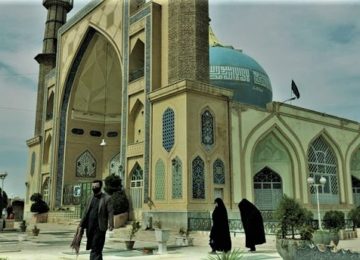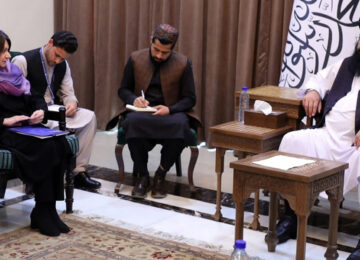Dr. Nasir Ahmad, an ophthalmologist hailing from Kabul, recalls his journey from Kabul to Islamabad after the Taliban takeover, “The border (Torkham) was in chaos… People had to wait for hours to cross. It was absolute mayhem!” Nasir had to flee Kabul along with his children and his ailing wife. After a massive toil, the family managed to rent a portion in the Pakistani capital. Having no means of livelihood in Islamabad amidst rising inflation, they find it hard to make both ends meet. “It is unfortunate that in these testing times, instead of easing the situation of Afghans on the move, more and more hindrances are created to delay the process of renting a house, granting/extending visas, etc.” Dr. Nasir further says that he understands that delays in visa issuance or extension happen because Pakistan is already dealing with such cases in ample amounts, but much is required to alleviate the miseries of Afghans and the world has to look at them with empathetic eyes.
Many Afghans, crème de la crème, have sought refuge in other countries in pursuit of a better life. Distressed with the loss of skilled and intellectual personnel, Dr. Nasir said that it is a grave concern for the country already undergoing a social and political upheaval. “What would an eye specialist like me do in Kabul right now when nothing is certain and the future of my children is at stake? The healthcare workers who are currently in Afghanistan certainly do not have enough resources to treat their patients, government hospitals do not have sufficient medical aid, and with the current situation of Omicron spreading widely, this could get worse. I hope the international community will do more to help us combat this crisis.” he said.
Like many others, Dr. Nasir believes that the current Afghan government will have to be pragmatic, discourage corruption, and pay heed to the vexing issues. “The only way Taliban can get recognised internationally is by showing some flexible approach, i.e. prioritising the welfare of the people, and allowing girls and women to study and letting them join positions in government and private sector. But this does not happen overnight, it will take time. The Taliban will have to demonstrate the will and grit in order to win the confidence of people at home and around the globe.” he said.
Many students had to escape too, fearing a bleak and unambitious future in Afghanistan. Dreaming to serve her country as a diplomat in the future, Maryam was in the 4th semester of her undergraduate studies when she left Kabul. Currently living in Islamabad, Maryam does not have a margin of hope for a better future. “I do not have anything to do now, I cannot study, I cannot participate in any events the way I often did in my university. Now, we all keep looking at the walls all day long.
Displaced Afghans in Pakistan have been waiting for the situation back home to get better, many await visas of other countries as the future in Afghanistan does not seem promising. “The Pakistani government should issue a stay permit to those Afghans who are not refugees but need to stay here for important reasons so they don’t have to go back to Afghanistan after every 60 days, as currently the multiple-entry visa only allows a 60-day duration of stay. If this issue gets addressed, this whole process for Afghans would be less painstaking. I just hope I can have a normal life back again and start afresh…”, said Maryam.
The Afghans await their fate and the world looks at Afghanistan with scepticism. While the Afghan Taliban try to put the state of governance and social conditions to rights, the international community ought to maximise humanitarian assistance and facilitate official processes for those who find themselves at an existential risk or want to leave the country for better prospects. Once the situation improves in Afghanistan, the developed nations can extend the offer to collaborate with the Afghan government on academic and vocational exchange programs as that would be yet another way to help revamp the social fabric and ameliorate the human capital of the war-torn country. At the same time, the international community should consider holding out an olive branch and step forward with their prerequisites to recognise the Taliban government as its recognition would prove momentous for major impediments, such as scantiness of humanitarian aid, plight of governance, etc.








